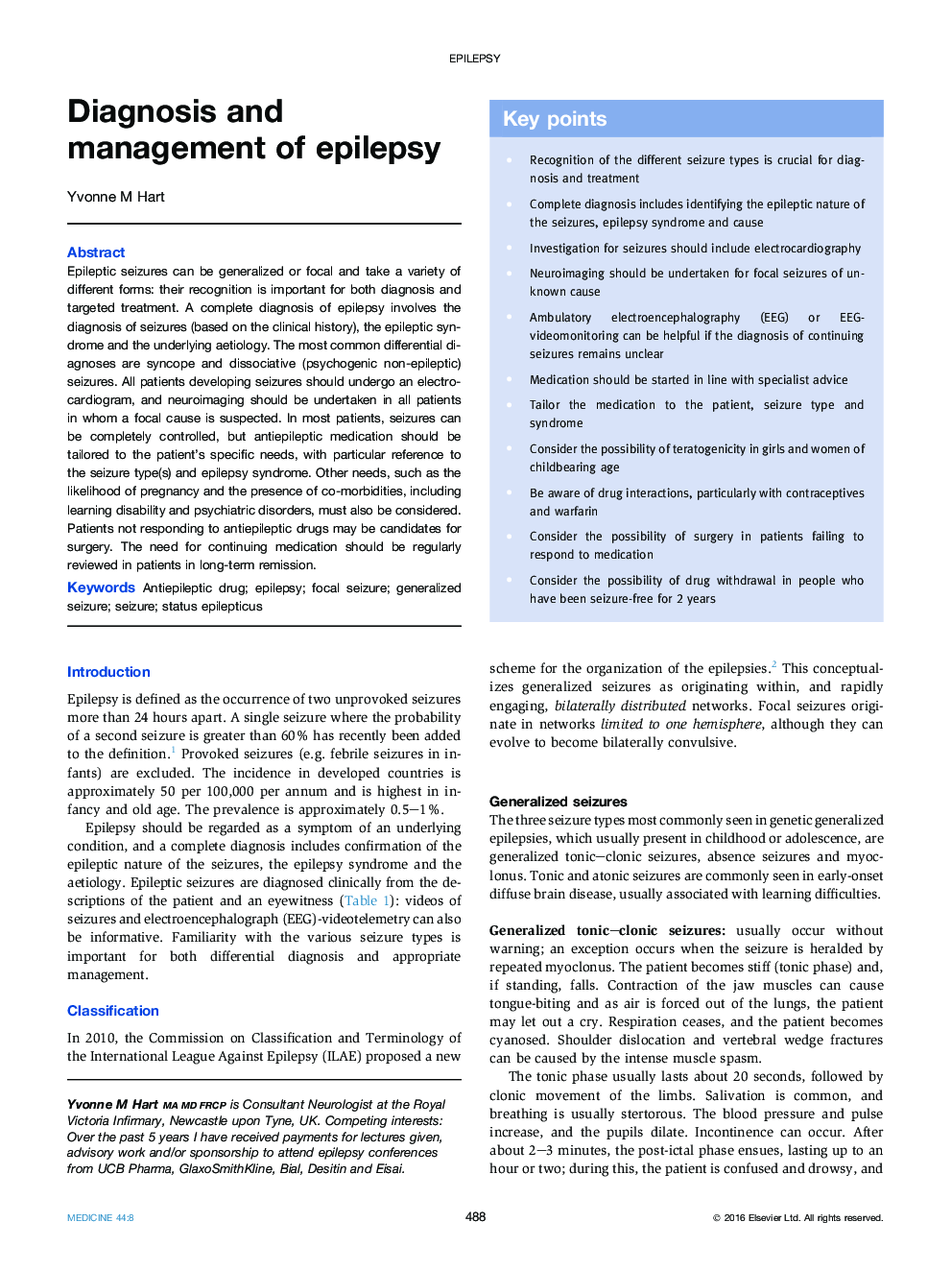| Article ID | Journal | Published Year | Pages | File Type |
|---|---|---|---|---|
| 3806069 | Medicine | 2016 | 7 Pages |
Epileptic seizures can be generalized or focal and take a variety of different forms: their recognition is important for both diagnosis and targeted treatment. A complete diagnosis of epilepsy involves the diagnosis of seizures (based on the clinical history), the epileptic syndrome and the underlying aetiology. The most common differential diagnoses are syncope and dissociative (psychogenic non-epileptic) seizures. All patients developing seizures should undergo an electrocardiogram, and neuroimaging should be undertaken in all patients in whom a focal cause is suspected. In most patients, seizures can be completely controlled, but antiepileptic medication should be tailored to the patient's specific needs, with particular reference to the seizure type(s) and epilepsy syndrome. Other needs, such as the likelihood of pregnancy and the presence of co-morbidities, including learning disability and psychiatric disorders, must also be considered. Patients not responding to antiepileptic drugs may be candidates for surgery. The need for continuing medication should be regularly reviewed in patients in long-term remission.
